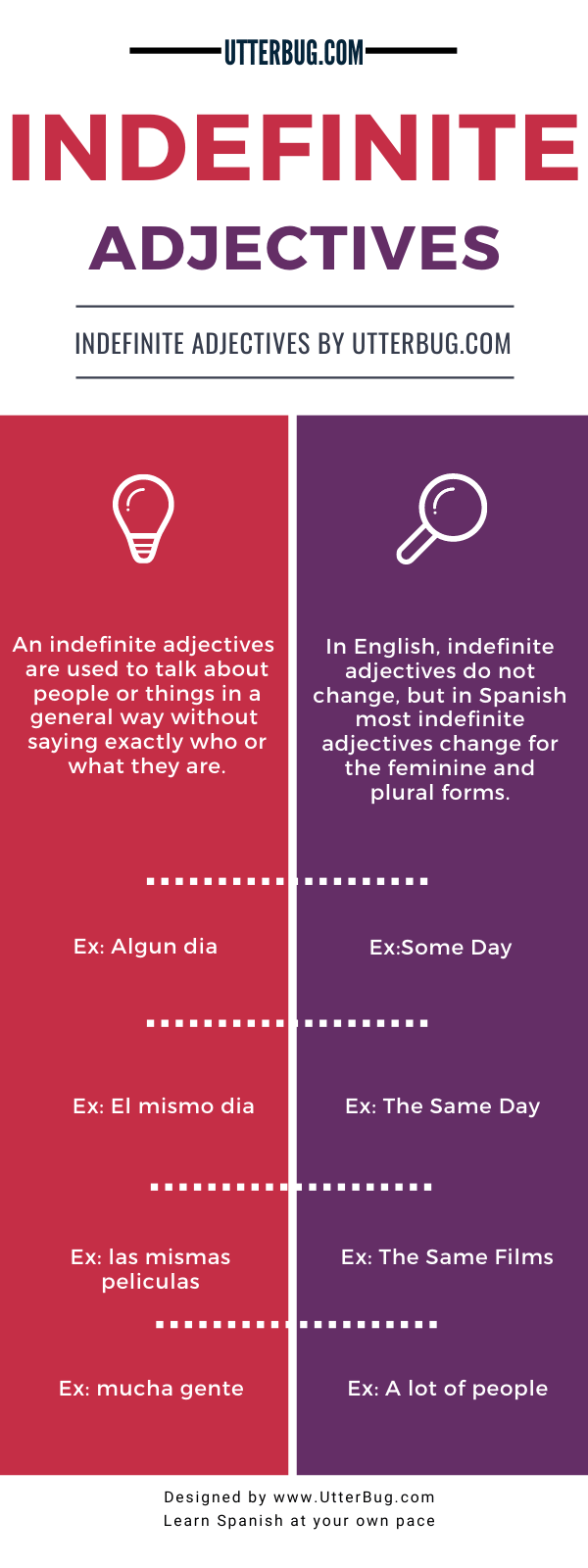
Table of Contents |
|
| 1. What are Indefinite Adjectives? | |
| 2. Indefnite Adjective Examples | |
| 3. Key Points of Indefnite Adjectives | |
| 4. Where to use Spanish Indefinite Adjectives | |

Indefinite Adjectives DefinitionAn indefinite adjective is one of a small group of adjectives used to talk about people or things in a general way without saying exactly who or what they are, for example, several, all, every. |
In English, indefinite adjectives do not change, but in Spanish most indefinite adjectives change for the feminine and plural forms.
| pocos amigos | Few Friends |

| Singular masculine | Feminine | Plural Masculine | Feminine | Meaning |
| Algun | alguna | algunos | algunas | some; any |
| cada | cada | each; every | ||
| mismo | misma | mismos | mismas | same |
| mucho | mucha | muchos | muchas | a lot of |
| otro | otra | otros | otras | another; other |
| poco | poca | pocos | pocas | little; few |
| tanto | tanta | tantos | tantas | so much; so many |
| todo | toda | todas varios | todas varias | all; every several |

KEY POINTS
|
| TIP: Some and any are usually not translated before nouns that you can't count like bread, butter, water. | |
| Is there any milk? | Hay leche? |
| There isn't any butter. | No hay mantequilla. |

| a definite article (el, la, los, las) | |
| They've been studying all night. | Han estudiado durante toda la noche. |
| They come every day. | Vienen todas los dias. |
| A demonstrative adjective (este, ese, aquel and so on) | |
| It has rained all this week | Ha llovido toda esta semana. |
| A possessive adjectives (mi, tu, su and so on) | |
| I'll sort out all my books. | Pondre en orden todoas mis libros. |
| A Place Name. | |
| The whole of Madrid knows it. | lo sabe todo Madrid. |
| As in English, Spanish indefinite adjectives come BEFORE the noun they describe. | |
| The same films | las mismas peliculas |